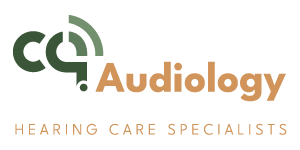Contact Us
We would love to speak with you.
Feel free to reach out using the below details.
Visit our main clinic
- T33 & 34A, City Centre Plaza, 24 Fitzroy Street, Rockhampton, QLD 4700
Get In Touch
- Phone: (07) 4848 6528
- Email: reception@cqaudiology.com.au
Trading Hours
- Mon-Fri 9:00AM - 5:00PM
- Sat 9:00AM - 12:00PM
Get a callback
Fill out the form below and we will contact you as soon as possible!
CQ Audiology Visiting Sites
BARCALDINE
Barcaldine 60 & Better Program
13 Willow Street
QLD 4725
BILOELA
Ace Medical Centre
48 Grevillea Street
QLD 4715
BLACKALL
Blackall Hospital
189 Landsborough Highway
QLD 4472
BLACKWATER
North Blackwater General Practice
14 Blain Street
QLD 4717
EMERALD
Lot 1 Pilot Farm Road
QLD 4720
MOUNT MORGAN
41 Morgan Strreet
QLD 4714
ROCKHAMPON CITY
T 33 & 34A City Centre Plaza
24 Fitzroy Street
QLD 4700
TAMBO
Tambo Multi Purpose Centre
26 Arthur Street, Tambo Queensland 4478
LONGREACH
North & West Queensland Primary Health Sercvies
19 Duck Street, Longreach Queensland 4730
YEPPOON
Keppel Bay Medical Centre
Shopt 26, Keppel Bay Plaza
64-67 James Street
QLD 4703

Experience Unmatched Clarity with Hearing Test Koongal - Rockhampton
Why Do I Need a Hearing Test?
Have you ever considered why a hearing test might be more than just a routine check-up? If you’re noticing that you’re asking people to repeat themselves more frequently, or if catching every word in a conversation is becoming a struggle, it’s likely time to evaluate your hearing health. Regular hearing assessments can unveil subtle changes that might otherwise go unnoticed, potentially indicating underlying health issues or the need for early intervention strategies. Imagine what you might discover about your hearing capabilities and overall well-being, and think about how this could influence your daily interactions and long-term health. What might you be missing out on by overlooking this simple test?
Importance of Regular Hearing Tests
Regular hearing tests are vital because hearing loss often develops subtly over time. If you’re over 60, it’s recommended that you get your hearing checked annually. This frequent monitoring can catch any gradual changes that mightn’t be immediately noticeable to you. For younger adults, testing every 3-5 years is sufficient to track your hearing health. Don’t wait until you notice a problem; by then, some damage might be irreversible.
Early testing in children is crucial too. It plays a significant role in their language development and in spotting any hearing impairments early on. If there’s an issue, catching it early can make a big difference. You’ll give your child the best chance at normal language and social development.
The benefits of staying on top of your hearing health extend beyond just catching hearing loss. Regular screenings can help reduce cognitive decline associated with untreated hearing issues. They also allow for the diagnosis of other pre-existing conditions that might affect your hearing. By keeping up with your hearing tests, you’re not just protecting your ears; you’re ensuring a better quality of life. So, make hearing tests a regular part of your health routine.
How Hearing Tests Work
When you undergo a hearing test, an audiologist assesses your ability to hear various sounds by measuring your hearing levels. They’ll likely use different types of tests tailored to your age and specific hearing needs. This ensures the most accurate assessment of your hearing health.
The process starts with you sitting in a soundproof room or booth wearing headphones. The audiologist plays a range of sounds at different volumes and pitches into the headphones and you’ll indicate when you can hear them. Each response is crucial, as it helps plot your hearing sensitivity across a spectrum of sound frequencies and intensities. This data is then recorded on an audiogram, a graph that visualizes your hearing capabilities.
The type and severity of any detected hearing loss are identified through this detailed analysis. Knowing this, the audiologist can recommend the best treatment options for you, whether that’s hearing aids, therapy, or other interventions.
Signs You Need a Hearing Test
If you’re struggling to follow conversations or frequently ask others to repeat themselves, it might be time to consider a hearing test. Difficulty hearing in noisy environments like restaurants or during social gatherings is another common sign. You may not realize how much effort you’re putting into understanding what’s being said until it becomes overwhelming.
Experiencing ringing in your ears, also known as tinnitus, is an additional indicator that you shouldn’t ignore. This persistent sound can be a symptom of underlying issues that a hearing test can help identify.
Children who show delays in speech and language development may also need a hearing test. It’s crucial to catch these issues early as they can significantly impact a child’s learning and social interactions.
Feeling isolated or frustrated when trying to communicate can take a toll on your emotional well-being. If you find yourself withdrawing from conversations or feeling anxious about social settings due to difficulties in hearing, it’s important to seek professional help.
Always consult an audiologist or doctor if you’re experiencing any of these symptoms. They can provide a professional evaluation and determine the next steps towards improving your hearing health.
Types of Hearing Loss
Understanding the different types of hearing loss is key to addressing your specific condition effectively. Let’s dive into the main categories you might encounter.
First, there’s conductive hearing loss, which impacts the outer or middle ear. It can be caused by anything that obstructs sound from traveling effectively to your inner ear—think ear infections, fluid build-up, or even excessive earwax.
On the other hand, sensorineural hearing loss affects your inner ear or the auditory nerve itself. This type is often due to damage from loud noise exposure, aging, or certain medical conditions.
You might also come across mixed hearing loss, which, as the name suggests, is a combination of conductive and sensorineural loss. This means you could be dealing with issues in both the outer or middle ear and the inner ear or auditory nerve.
Lastly, there’s congenital hearing loss, which is present at birth, and acquired hearing loss, which occurs later in life. Both types can stem from a variety of genetic and environmental factors.
Identifying which type of hearing loss you’re experiencing is crucial. It directs the course for treatment and ensures you receive the most appropriate care for your condition.
Hearing Tests Across Age Groups
After identifying the type of hearing loss you might be experiencing, it’s important to explore how hearing tests are administered across different age groups to ensure accurate assessment and treatment. Hearing tests vary significantly depending on age, reflecting each group’s specific needs and capabilities.
For babies and toddlers, specialized behavioral tests are crucial. These tests are designed to monitor how young children respond to sounds, which is vital for their language development and early intervention if needed. As children grow, the methods evolve to include more direct feedback mechanisms where kids can respond to what they hear through games or by indicating the direction of the sound.
For adults, the tests typically involve standard audiometry, where you’ll wear headphones and indicate whether you can hear various tones, helping to pinpoint the range and extent of hearing loss.
Older adults might undergo similar tests but with additional checks for age-related hearing loss, known as presbycusis. It’s crucial to have regular screenings as this type of hearing loss can gradually worsen without obvious symptoms initially.
No matter your age, these tailored tests help ensure that any hearing issues are caught early and managed effectively, keeping you connected to the world around you.
Where to Get a Hearing Test
You can easily schedule a hearing test at a local audiology clinic, often without needing a referral from your doctor. This accessibility makes it convenient for you to check your hearing whenever you suspect a problem or just as a routine check-up. Many clinics offer flexible appointment times to fit your schedule, ensuring that getting a test is as hassle-free as possible.
In Australia, if you’re eligible, the Australian Government Hearing Services Program provides fully subsidised hearing tests. This program is designed to help manage and mitigate hearing loss by providing necessary services to those who qualify. You’ll need to check if you meet the criteria to take advantage of this benefit.
Additionally, some costs may be covered by Medicare if you get a referral from an ENT specialist. This could be a viable option if your hearing concerns are part of broader health issues that require specialist attention.
Various resources are available to help you find where to get your hearing tested. Online directories, healthcare websites, and even recommendations from friends and family can guide you to reputable audiology services. Remember, early detection is crucial, so don’t hesitate to seek out a hearing test if you have concerns.
Why Choose CQ Audiology for hearing test?
When considering where to get a reliable hearing test, CQ Audiology’s state-of-the-art equipment and experienced audiologists make it a top choice. You’ll find their modern tools not only impressive but crucial for accurate results. The team’s deep expertise ensures you’re guided expertly through the testing process, so you understand exactly what’s happening and why.
CQ Audiology also values your time, offering convenient appointment scheduling to fit your busy lifestyle. You won’t need to rearrange your day or deal with unnecessary delays. Whether it’s early morning or late afternoon, you’ll find a slot that works for you.
Moreover, each hearing assessment at CQ Audiology is tailored to meet individual needs. They don’t just run standard tests; they look at your specific hearing issues and lifestyle to provide personalized, practical solutions. After your test, they’ll offer customized treatment recommendations based on your results, ensuring you get the most effective care for your hearing health.
Choosing CQ Audiology means opting for a seamless, supportive, and thorough approach to maintaining and enhancing your hearing. Why settle for less when you can have the best expertise and convenience?
Conclusion
You’ve learned why regular hearing tests are crucial, how they’re conducted, and the signs that suggest you might need one.
Whether you’re young or old, understanding different types of hearing loss and knowing where to get tested is key. Choosing CQ Audiology ensures you’re opting for top-notch care tailored to your needs.
Remember, keeping up with your hearing health can vastly improve your quality of life. Don’t wait; book your hearing test today!
DISCLAIMER: The content on our site is intended for educational purposes only and should not be interpreted as an endorsement or recommendation of any treatments or products without a comprehensive hearing assessment. Users should seek professional advice and fully understand any potential side effects or risks before starting any treatment. Products mentioned on our site are not available for purchase by the public without prior consultation with a hearing health expert.
